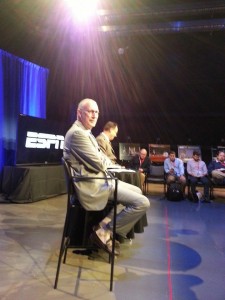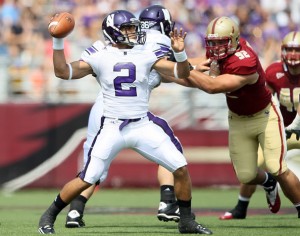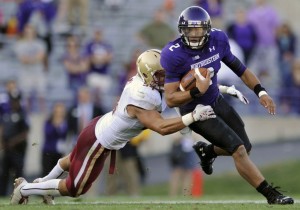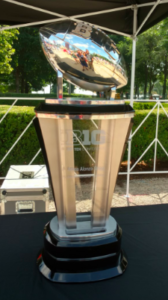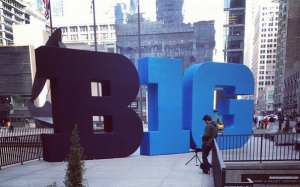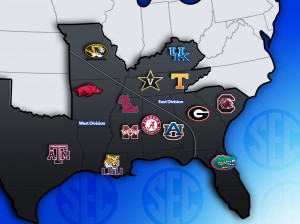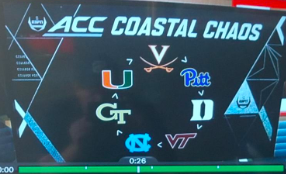The total chaos that is unfolding right now in college sports may or may not have been predicted by John Skipper, then President of ESPN, back in 2014.
The comments he made almost a decade ago, although vague, were prescient in the grand scheme of things. Let’s flash back to that now, and then consider how those remarks stand up today, given what’s going on in regards to college athletics.
(Note: any time someone says “college athletics” they just mean football, and the tv ratings that come along with football. I cannot stress this enough- nothing other than football and television numbers matters these days to the leadership figures of Universities and conferences)
A man once called the “4th most powerful person in sports,” John Skipper, President of ESPN, made these remarks on May 29, 2014, when the college football player unionization effort, CAPA, Northwestern football, Kain Colter etc. etc. were all top trending topics.
First, a little background, John Skipper ran a then $42 billion empire, the most powerful entity controlling live sports (a.k.a., the last DVR-proof type of broadcasting). In college football ESPN is by far the dominant TV player, televising all the playoff and title games through the 2026 season (at $610 million a year)..
Skipper was asked about what the college sports world will look like once his network’s deals expire.
“I don’t know what it will look like, I think it will look different. We are still highly confident that it will be popular, that people will want to watch the games. I’m fairly confident they won’t have some kind of apocalyptic transformation where the players are unionized and they only play seven times a year,” John Skipper said.
“I think they’ll ultimately figure something out, and likely the five power conferences have some kind of slightly different set of rules, some level of freedom that allows them to treat their athletes different. People talk about college sports and how it’s broken and it’s a big problem.”
“College sports aren’t broken, big time football and big time men’s basketball has a current issue around places where there’s a sense that the players are being exploited inappropriately, and there’s a sense that the student-athlete paradigm has been subverted.”
And I think there’s some truth to that, I believe the quarterback at Northwestern was upset because he couldn’t take a chemistry class that he wanted to take because it would interfere with football practice, I believe that would suggest he’s an athlete-student not a student-athlete, because if he’s a student-athlete the chemistry class would be more important.
I get that sports is important, we spend a lot of money on it, and you can’t be flippant about practice, but you got to figure something out. You can’t just say you can’t go to chemistry class.”
A few things stand out there, let’s start with this:
I think it will look different. We are still highly confident that it will be popular, that people will want to watch the games. I’m fairly confident they won’t have some kind of apocalyptic transformation where the players are unionized and they only play seven times a year,”
It’s true, popularity is not an issue for college football year round, or men’s college basketball in March.
If anything, its even more popular. And while we do have total chaos right now, when it comes to the partnerships and allegiances among schools, to the point that the very idea of a conference is dead, it is not an apocalyptic transformation.
It is actually the notion of a conference or league getting murdered, to the point where its just about who you share tv deals with, so that that the television overlords can then dictate your schedule, and now these days, even kickoff times.
And we’re not going to see fewer games being played. It’s actually going in the opposite direction.
likely the five power conferences have some kind of slightly different set of rules, some level of freedom”
Yes, this is what’s happening, the power five is turning into the power three, with an eventuality of a power two. The Pac 12 is dead, the ACC is next, and the Big 12 may have to exist as a men’s basketball conference first and foremost, meaning they’ll be much less relevant.
Eventually, we’ll have a Big Ten-SEC duopoly, where they exist as a de facto AFC and NFC for college football.
There you have it- everything has been said, the future has been predicted.
End of story. The reckoning is here. So let it be written. So let it be done.
Paul M. Banks is the owner/manager of The Sports Bank. He’s also the author of “Transatlantic Passage: How the English Premier League Redefined Soccer in America,” and “No, I Can’t Get You Free Tickets: Lessons Learned From a Life in the Sports Media Industry.”
He’s written for numerous publications, including the New York Daily News, Sports Illustrated and the Chicago Tribune. He regularly appears on NTD News and WGN News Now. Follow the website on Twitter and Instagram.
